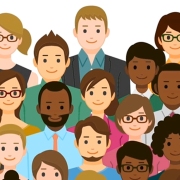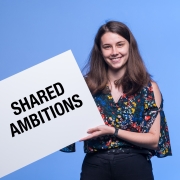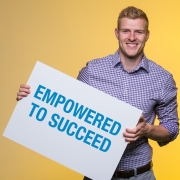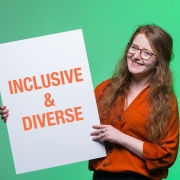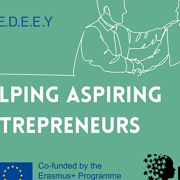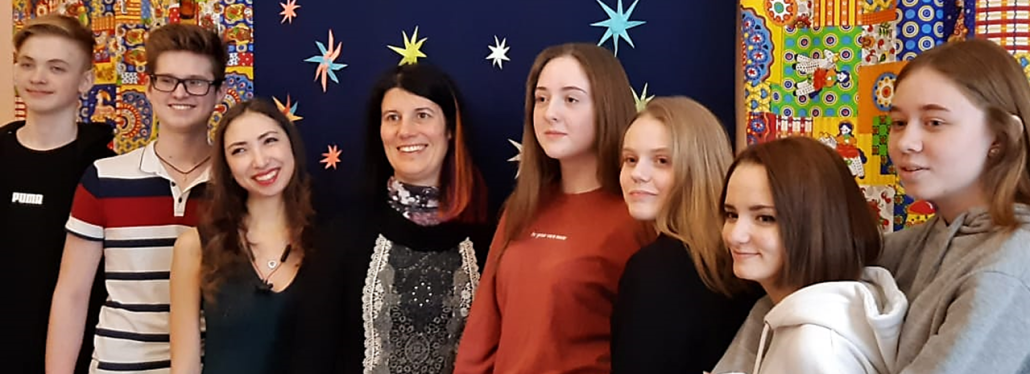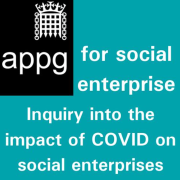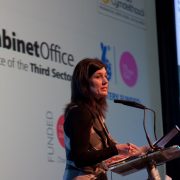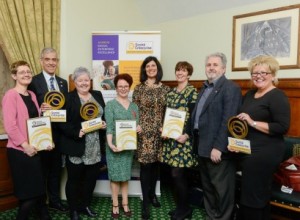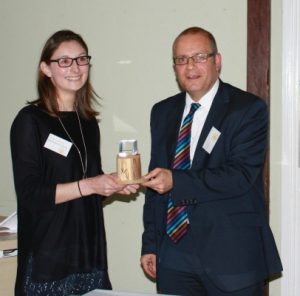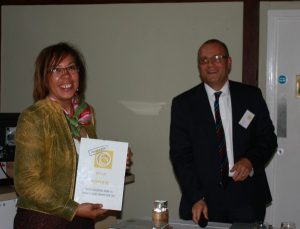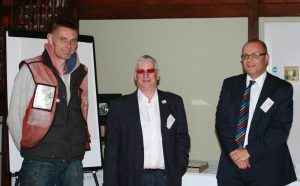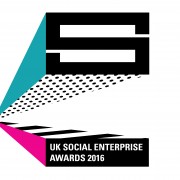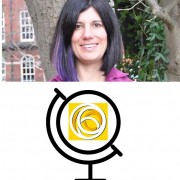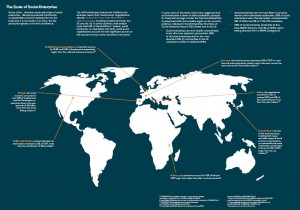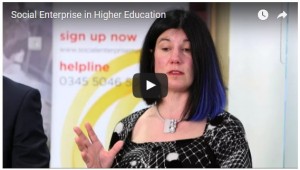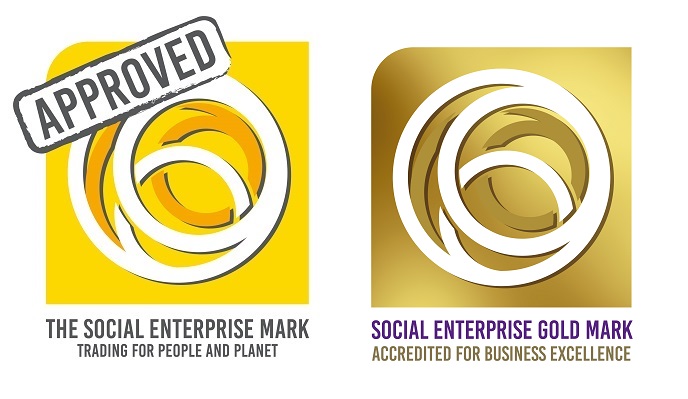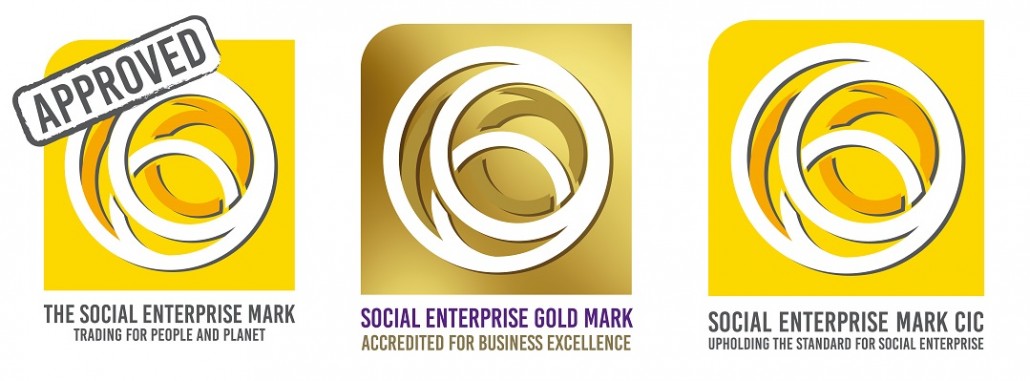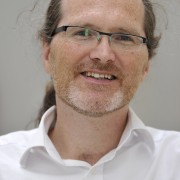This website uses cookies so that we can provide you with the best user experience possible. Cookie information is stored in your browser and performs functions such as recognising you when you return to our website and helping our team to understand which sections of the website you find most interesting and useful.
Posts
Dispelling the myths of Social Enterprise, Employee Ownership and Purposeful Business
It is frustrating that the wider world tends to have a very narrow understanding of what the key characteristics of being a good business are. This is not helped by the media’s portrayal of a macho business world in programmes such as The Apprentice and Dragon’s Den and follows the news that often focuses on corporate scandal and businesses that are solely focused on the delivery of profit for shareholders at the expense of other models of business.
The rise of the ‘Purposeful Business
This polar focus is not the reality as most business owners and stakeholders realise that there is more to being a business than just making a financial profit, particularly in the light of climate change. The rise of the ‘purposeful business’ has become a noticeable trend over the last few years. These types of businesses should aim to tackle the UN’s Sustainable Development Goals and address the negative effects of economic development.
One of the main ways to ensure that a business is driven by a social purpose and social impact though is to embed this in the governance of the business through either a specific legal structure/form such as a Community Interest Company (CIC) or an Industrial and Provident Society (IPS) that can limit shareholder financial gain.
Another way to ensure that a business is social values-driven is to write purpose, values and rules into governance both within governing documents and via the modus operandi of the Board of Directors and in the interaction with stakeholders. This means that such a business can have a variety of legal forms. Social enterprises (SEs) and employee owned businesses (EOs) are good examples of these types of business. The Social Enterprise Mark ensures that that there is rigour in this approach by accrediting governing documents, trading levels and social impact.
Below we look in more detail at the overlap between the two and bust some myths associated with both:
Why consider employee ownership?
Becoming an employee-owned business intrinsically helps to create a people-centred business that values its staff. As the first large law firm in the UK to give all eligible members of staff an equal share in its profits, Stephens Scown is leading this approach and attracting interest from beyond the legal sector. In their experience, employee ownership means staff become more engaged and motivated to achieve growth with a view to the wider ethos and impact of the business. It also promotes a culture focused on each person’s contribution to the business and this in turn can support the development of a purposeful business.
The link between employee ownership and social enterprise
Becoming a social enterprise creates a values-led business because it puts people and planet before profit for shareholders. The Social Enterprise Mark has 12 years’ experience of applying and accrediting this approach internationally in all sectors. Additionally, in many cases there is an overlap between social enterprises and employee owned businesses because of the close relationship to values and valuing people. A good example of this is Social Enterprise Gold Mark Holder Integrated Care 24 urgent care providers which have offered company shares to all employees with the aim of gaining better staff engagement and ownership.
Myths around EO and SE abound, though. Here we outline a few of them:
Employee ownership and social enterprise models only work for a certain size of company
Not true… The John Lewis Partnership is a longstanding example of a large employee owned business. Market Carpets in Devon with 29 employees is a smaller example. In the social enterprise world we have a number of mark-holders with multi-million pound turnover such as University of Westminster and The Growth Company.
All the shares must be held by employees in the case of EO
A founder in an EO may wish to retain a shareholding as they are not retiring or it may be a family business with family members actively working in the business.
A social enterprise cannot have shareholders
Most do not have shareholders, but there are shareholder models such as Community Interest Companies Ltd by Shares and Community Benefit Societies but any dividend distribution is either zero or limited to 35% of profits. At Social Enterprise Mark, a dividend cap of up to 49% of profits is also acceptable.
The employees use their own money to buy the company in the case of an EO
Not true…the company could seek bank funding but usually the purchase price is settled using the profits of the company over a period of time.
Both SE and EO are very niche rather than mainstream business models
Not true – in January 2021 it was found that employee ownership represented 1 in 20 private company sales. It is estimated that there are more than 100,000 social enterprises in the UK. So long as the business is maximising social value rather than profit for individuals the many businesses could qualify as Social Enterprise’s for the Social Enterprise Mark.
A founder/shareholder (if a social enterprise has shareholders) will lose money if they choose Employee Ownership or Social Enterprise over a trade sale/company sale
True and false in both cases – it may be that the perfect purchaser wants to buy the company for more than it is worth because it fits into their strategic plan or the company is their main supplier in the case of an EO. If certain criteria are met, choosing employee ownership can be advantageous from a tax perspective for a founder as there is a capital gains tax exemption if at least half the business becomes employee owed. In the case of a CIC limited by shares, shares can be sold at a rate that a buyer is prepared to pay. This rate is likely to be limited, however, due to the limitations placed on assets and profit distribution.
If a business is employee-owned the employees could do what they like with it!
Not true – the company’s managers are accountable to the employees rather than external shareholders. If the company has a governing document, this will usually set out how decisions should be made and if certain criteria should be prioritised in decision making such as the likely impact on the climate or employees of a decision.
A social enterprise can be sold to a private company and lose its social enterprise status
True and false – a social enterprise should have some form of asset lock which maintains its independence from its parent that it is sold onto. In the case of the Social Enterprise Mark accreditation there’s a requirement that any parent company also holds an asset lock or can demonstrate a business case as to why it doesn’t (in very rare cases)
Offering different legal structures for a business out outside the Company Ltd by Shares model helps to ‘bake in’ social impact for employees and stakeholders.
Greater understanding and uptake of these models would help to ensure that social and environmental action are part of the business DNA.
We need greater profile of these alternatives rather than resorting to more common legal forms which put individual shareholder gain at the centre.
As the old saying goes ‘legal form should follow business function’.
By Catherine Carlton (Stephens Scown LLP) and Lucy Findlay (Social Enterprise Mark CIC)
EDEEY: Helping Aspiring Entrepreneurs Conference
The Ethical Digital Entrepreneurship for European Youth (EDEEY project) conference will showcase online learning platform that supports aspiring #entrepreneurs who are starting out on their ethical and social enterprise journey.
At the London conference you will hear from young people who are winners in the EDEEY competition to come up with a business idea and create a business plan. Expert speakers at the conference include our own Lucy Findlay MBE along with Christina Bonarou from Symplexis (Greece) and Sculpt’s Chief Executive Dr. Claire Bonham.
The learning platform has four available courses on:
1. Business Planning
2. Access to Finance and other support for your enterprise
3. Social Media and Content Marketing
4. GDPR and Digital Skills
Sculpt will be sharing the pilot cohort experience of the training resources in the UK, Cyprus, Czech Republic and Greece, and there will also be an opportunity to explore the online learning platform.
Lucy Findlay MBE says, “I am pleased to support the work of Sculpt. It’s really important for young people to find a source of support and guidance in their aspirations to help create a better world as well as to network and share with those with who have the same values.”
Book your place to attend in-person 22 June 2022 here.
Download the conference flyer here: Sculpt – EDEEY Conference JUNE 2022
IWD Reflections for 2022
Welcome to a very poignant International Women’s Day.
This year it is so sad to remember where I was 2 years ago when I celebrated with my Siberian peer exchange and good friend Irina Makeeva and her family in Novosibirsk, followed by a trip to see Swan Lake. In the days following, I met so many amazing people interested in and actively engaging in making a difference to their local and regional economies through social enterprise and social innovation.
One of my most abiding memories, however, was when I listened to a disabled girl sing a popular tune at the local folklore school with her friends. She sang with so much passion and hope. She was due to sing the song with the star Jasmin who made the song a hit later that year, but then Covid19 intervened.
This year we have agreed with our Russian peers that we need to support one another symbolically – Women in Solidarity. We are making a small gesture of cooking each other’s national dishes. I have just made a big pot of Borsht!
Today we also celebrate a year of our Women’s Leadership Network which was launched on IWD21. In a world where women often don’t identify with the term ‘leader’ we have together to exchange stories, tips and thoughts from inspirational women. These are now all recorded and can be viewed on our YouTube channel. At today’s event we will be hearing from Daniela Papi-Thornton who will be speaking about her leadership journey and thoughts on reclaiming social entrepreneurship from the niche.
On Wednesday we are extending our celebrations to partner with out friends at Millfields Trust to run another women’s networking session in Plymouth on the theme of Breaking the Bias featuring Jenny Evans, an award winning young entrepreneur and artist. She studied textiles at Cardiff Metropolitan University, has won Santander’s University Entrepreneur’s national competition in 2017, and went on to set up a high growth, investor backed business in 2018 after raising a seed round of £350,000. It’s not too late to sign up!
Managing Director, Social Enterprise Mark CIC
#BreakTheBias #IWD2022
APPG Inquiry into the impact of COVID on social enterprises
Great to hear from Charles Courtenay (Earl of Devon) Liz Minns Social Enterprise UK Karen Lynch (nee Borsberry-Woods) Lindsey Hall Real Ideas Organisation as some of the Panelists at the #APPG Inquiry Report Launch on behalf of Lucy Findlay MBE who contributed to the #socialenterpise sector evidencing on behalf of Social Enterprise Mark CIC and #SE_Mark Holders.
The role of the Inquiry was to investigate the impact of COVID on social enterprises and what lessons can be learned.
The UK’s 100,000 social enterprises experienced the pandemic in a unique way having to balance both increased demand from those people they support and pressure on their business. Many adapted their business models and pivoted to support their communities at a faster rate than their peers.
The inquiry identified four key themes during the course of its work.
- Lack of understanding of social enterprise across HM Government
- The importance of place-based working and local delivery
- The vital contribution of social enterprises to public services
- The substantial opportunity for social enterprises to contribute to the UK’s recovery and levelling up after the pandemic
Resonant themes include localism, joined up working, social economy and move of #socent to Department for Business, Energy and Industrial Strategy (BEIS)… lots to unpack, well worth a read.
📔 3 mins and a good ☕️
READ MORE and download the full report:
Inquiry into the impact of COVID on social enterprises » Social Enterprise UK
Another year older, another year wiser?
As we celebrate the 8th anniversary of the launch of the Social Enterprise Mark, I am proud of our progress, and how we have remained true to our original aim of identifying and certifying genuine social enterprises, and more latterly emphasising the upholding of standards to support this aim.
Since 2010, Social Enterprise Mark CIC (and formerly RISE, the umbrella body that supported social enterprises in the south west of England), has acted as an arbiter of robust social enterprise standards, working to ensure the social enterprise business model remains ethical, credible and commercial, through independent accreditation.
It would perhaps have been easier at times not to have ‘stuck to our guns’, but we have learnt many valuable lessons along the way. Plus, I do pride myself on the fact that my USP is not following the crowd! We have continually adapted our products to the changing marketplace, responding to customer’s needs, market opportunities and changes to the economy.
For example, we developed and launched the Social Enterprise Gold Mark in 2014, as the first (and only) standard of social enterprise excellence. This was in response to people questioning how you can identify excellence and good practice in social enterprise. The Gold Mark is not just an accreditation; it scores businesses in different areas of governance, ethical business practice, financial transparency, and social and environmental impact, and also provides an action plan going forwards to ensure continual development.
As we continue to see high profile private sector/corporate service delivery debacles putting shareholder interests before people and communities, e.g. Carillion, Virgin Care, G4S, Capita etc etc (not to mention the banking sector!), I can’t help thinking that we should surely be at a turning point by now?
The debate nationally still seems to be – ‘how can we get social enterprises to scale up to meet the needs of commissioners?’ Surely this is the wrong question. Bigger and bigger often leads to standardisation, mediocrity and a lack of flexibility to the local circumstances. Plus, there is another way and it does not have to copy the corporate world! Social enterprise offers a flexible, credible, business approach to the problems and issues that society has, without hands tied behind its back with pressure from shareholders and investors. Maybe one day the penny will drop?
It does appear to be dropping with consumers; the 2017 Ethical Consumer Markets Report showed that almost ¼ of respondents reported buying goods/services specifically because of a company’s ethical reputation, a 28% increase on the previous year. The tide is turning and hopefully the public and corporate sector will sit up and take note and we will see a new paradigm where businesses can’t just tick a box anymore – they actually have to prove that they are making a positive impact on society and the world around us. Maybe then we will welcome an age where social enterprise is lauded as the true business model of choice, proving that it is not just a ‘lip service’ CSR department.
In anticipation of this, we believe it is crucial to get ourselves prepared with clear standards, which differentiate and protect the integrity of genuine social enterprises, and to help consumers identify businesses that are committed to truly trading for the good of people and planet.
That is why, as we embark on our 9th year as the social enterprise accreditation authority, I am confident that we are moving in the right direction and that the big times are still to come!
Renewed Memorandum of Understanding with CIC Regulator
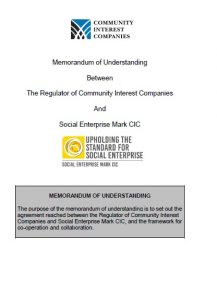 We have recently renewed the Memorandum of Understanding with The Regulator of Community Interest Companies, symbolising an ongoing commitment to co-operation & collaboration.
We have recently renewed the Memorandum of Understanding with The Regulator of Community Interest Companies, symbolising an ongoing commitment to co-operation & collaboration.
The agreement enables both parties to exchange information and provide feedback on relevant issues relating to CICs. The Office of the Regulator of Community Interest Companies will work alongside Social Enterprise Mark CIC to represent the interests of Community Interest Companies (CICs).
There are now almost 13,500 CICs in the UK, engaged in every sector of the community. A CIC is a company which has been set up to deliver benefit to a stated community and it agrees to be regulated to ensure that it delivers that benefit. CICs are governed by company law and also related CIC legislation, which ensures that they deliver continued benefit to the community. The additional responsibilities include the asset lock which ensures that the assets remain with the company and cannot be asset stripped and the annual community interest company report which is placed on public record.
Although there is no single legal structure for social enterprise, the CIC model was specifically designed with social enterprises in mind. It aimed to bridge the gap between standard commercial businesses and charities, recognising that some businesses wanted to provide some benefit to the community through their commercial activities but without the regulation and restrictions which come with being a registered charity. CICs automatically meet most of the criteria covered by the Social Enterprise Mark and over ¼ of the Social Enterprise Mark CIC network of accredited social enterprises are registered as CICs.
Ealing Community Transport named Making a Mark competition winners
Ealing Community Transport, part of national charity ECT, was named as the winner of the 2017 Social Enterprise Mark CIC ‘Making a Mark’ competition at a celebration at our recent conference in Winchester. They were presented with a special award, created for us by Designs in Mind*, a social enterprise studio of designer makers who have been referred through mental health services.
This is the second year of the Making a Mark competition; a celebration of the vast and diverse social benefits created by Social Enterprise Mark holders, which highlights interesting examples of how accredited social enterprises are creating considerable social impact within their local communities and in wider society.
We invited James Evans of the Certification Panel to present the award, which was accepted by Becky Casement from Ealing Community Transport. James commended all the finalists on their achievements and congratulated them on making the shortlist, before presenting certificates to all the finalists who were in attendance at the conference.
Anna Whitty MBE, Chief Executive of ECT Charity, said: “We are thrilled to have been named as the winners of this year’s Making a Mark competition for our continued work to measure our social impact. We are committed to providing high quality, safe, friendly, accessible and affordable transport in local communities, so it’s really important that we can measure how well we are achieving these aims and what difference it makes.”
“In the last year alone ECT Charity has enabled more than 98,000 passenger trips for individuals and more than 60,000 group trips for over 400 community groups. We have also been able to calculate our social impact using our recently developed methodology. It allows us to demonstrate that in the past year ECT’s charitable activities have had a social value of £1.3 million; in the London Borough of Ealing alone, community transport could save up to £4.1 million annually by reducing isolation and loneliness. We are incredibly proud of these achievements and would like to thank Social Enterprise Mark CIC for their recognition of our work in this award.”
Lucy Findlay, Managing Director of Social Enterprise Mark CIC, said, “We are delighted to announce the long standing Social Enterprise Mark holder Ealing Community Transport as the 2017 ‘Making a Mark’ competition winners. They won because of their ability to demonstrate their social impact across a wide range of groups, including helping overcome social isolation. They clearly demonstrate social impact created for individuals using the transport, as well as contributing to the sustainability of local community groups. Well done to Anna and the whole ECT team.”
Selected from the diverse international network of accredited social enterprises, Ealing Community Transport was shortlisted alongside 6 other organisations, including The Big Issue Group and Epic CIC, which was named as the runner up. The competition shortlist was subject to a public vote and a separate vote by the independent Certification Panel, both of which accounted for 50% of the final result.
 We would like to extend our congratulations to all of the competition finalists:
We would like to extend our congratulations to all of the competition finalists:
- Connection Crew
- Ealing Community Transport
- Emmaus Cambridge
- Epic CIC
- South Shropshire Furniture Scheme
- The Big Issue Group
- Warrington Health Plus CIC
 *Designs in Mind design and make products, working in textiles, wood, wire and glass. Through their work they aim to challenge mental health stigma and the predominant culture of low expectation which surrounds their designer makers, all of whom are adults referred through mental health services.
*Designs in Mind design and make products, working in textiles, wood, wire and glass. Through their work they aim to challenge mental health stigma and the predominant culture of low expectation which surrounds their designer makers, all of whom are adults referred through mental health services.
The Making a Mark award was created by a team of designer makers, including Amy, who explains her journey at Designs in Mind in this blog post. As a result of working on this award, Amy is now volunteering for Designs in Mind in public screen printing workshops.
Challenging consumers to look ‘beyond the badge’
Social Enterprise Mark CIC has partnered with several well-respected standard setting and accreditation bodies to encourage consumers to challenge ethical labels and sustainability claims that are used by brands they buy from.
With recent studies* suggesting that sustainability issues are playing an increasing role in consumer purchase decisions, the new campaign aims to educate consumers about ways they can identify genuine labels and claims, and therefore make more informed choices. Working with fellow accreditation bodies Golf Environment Organization, Living Wage Foundation, Soil Association Certification and TrustMark, and also Ethical Consumer, a key player in the ethical consumer movement, Social Enterprise Mark CIC hopes to get consumers thinking more about the labels and badges that appear on the products they buy, and to find out what they actually mean.
Lucy Findlay, Managing Director of Social Enterprise Mark CIC explains the motives behind the campaign: “With the practice of greenwashing now commonplace in consumer markets, we feel it is really important for consumers to challenge what brands are telling them and not just accept their claims at face value.”
“That is why we have developed this campaign – to educate and support consumers to question the validity of ethical claims, to enable them to identify those that actually have some substance. We are pleased to have the support of several high-profile partners, to engage with a wider consumer audience across multiple sectors.”
Director of Ethical Consumer Tim Hunt, explains their reasons for getting involved: “We are pleased to support the ‘Beyond the Badge’ campaign, as a timely reminder of the need to question the real meaning behind the logos, symbols and standards on the products we buy. As time-poor consumers we often rely on what companies tell us, as to how sustainable and ethical a product or service is. In a ‘greenwash-rich’ world we very much encourage shoppers to ask tough questions of producers and retailers, to ensure they reflect our values and are deserving of our custom.”
The campaign calls on consumers to look ‘beyond the badge’, to find out more about ethical claims, and to look for any evidence or proof to support such claims. Social Enterprise Mark CIC has put together some useful tips to support consumers to cut through the “greenwash” to identify genuine labels and claims. One way that is suggested is to look out for a symbol of accreditation, which has been independently assessed and awarded by a third party. Social Enterprise Mark CIC and the campaign partners believe that accreditation and certification is vital in engendering consumer trust in brands, as it provides visible proof of an organisations sustainability credentials.
As explained by Clare McDermott, Business Development Director of Soil Association Certification, “Trust is a major issue for consumers; our research last summer found this to be the biggest influencer on purchasing behaviour and accreditation and certification is the best way to guarantee trust and reassure people. We’re really pleased to be supporting Beyond the Badge the campaign as the UK’s leading organic and ethical certification body, to help make sure people know what they are buying and to expose greenwashing and false claims.”
This is a sentiment echoed by Libi Newell, Communications Manager at Golf Environment Organization “Credibility should be at the centre of any meaningful standard and certification system. That has been the case with GEO Certified® from the very start; it’s transparency and independent verification has been instrumental in it becoming a trusted mark with a strong reputation. Because of this it provides value to golf clubs, and the golf industry demonstrating real commitment and positive impact. We are pleased to be involved with this campaign, to promote credible certification and support consumers to make informed purchase decisions, and to know they are buying from businesses they can trust.”
Social Enterprise Mark CIC and the campaign partners urge consumers to pledge their support to the campaign, and to get involved by spreading the word on social media. There is also a Thunderclap that people can join, where a message will be posted at the same time from hundreds of social media accounts, to create a buzz of conversation about our new scheme.
People are also encouraged to keep an eye out for examples of greenwashing and to share these on social media, using the campaign hashtag #GoBeyondTheBadge. Full information can be found at www.socialenterprisemark.org.uk/beyond-the-badge/
* Unilever study of 20,000 adults from five countries revealed one third (33%) of consumers are now buying from brands based on their social and environmental impact. The study asked how sustainability concerns impact choices in-store and at home. Crucially, it then mapped their claims against real purchase decisions, giving a more accurate picture than ever of what people are buying – and why.
Celebrating 7 years of upholding the standard for social enterprise
On the 7th anniversary of the launch of the Social Enterprise Mark, I am reminded of how far we have come as a sector in that time, but also of how far we have to go in being truly recognised as competitive, sustainable businesses in the mainstream business world.
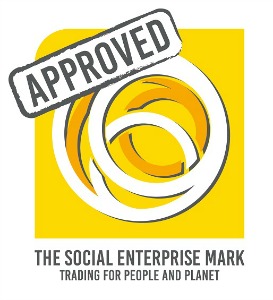 Since our inception back in 2010, Social Enterprise Mark CIC has endeavoured to ensure the social enterprise business model remains ethical, credible and commercial, through independent accreditation. As well as providing a single recognisable ‘identifier’ for genuine social enterprises, which are externally assessed against sector-agreed criteria, we work to promote the capabilities of social enterprises as a credible alternative to more traditional business models.
Since our inception back in 2010, Social Enterprise Mark CIC has endeavoured to ensure the social enterprise business model remains ethical, credible and commercial, through independent accreditation. As well as providing a single recognisable ‘identifier’ for genuine social enterprises, which are externally assessed against sector-agreed criteria, we work to promote the capabilities of social enterprises as a credible alternative to more traditional business models.
This is not easy by any means, especially when it comes to spreading the message to the public and consumers. However, there is clearly a shift change occurring in consumer attitudes towards the sustainability of brands and organisation, as seen in a recent study by consumer goods giant Unilever, which found more than a third of consumers now choose to buy from brands they believe are doing social or environmental good.
We are currently planning a new campaign, which will aim to encourage consumers to consider how they can be sure of the ethical/sustainable credentials of the organisations they buy from. By working with several high profile partners, we hope to spread the message to a much wider audience and to start a global conversation about how consumers can be sure brands are ‘walking the walk’ and not just ‘talking the talk’ when it comes to sustainability and their social purpose.
Another constant challenge is influencing government policy and embedding social enterprise within their mindset. I was interested to see PM Teresa May allude (albeit briefly) to her vision for an inclusive business strategy in the foreword of the government’s Green Paper on the Industrial Strategy: Building our Industrial Strategy. Although there was no direct reference to her recent Shared Society speech, the PM declared that the government wants to “move beyond short-term thinking to focus on the big decisions that will deliver long-term, sustainable success”.
As I wrote back in November in a post looking at the pressures faced by the public sector, tight financial constraints have been resulting in a rather short-term focus, where the bottom line has become of overriding importance, over and above what may be best for society in the long term. Social enterprises are rooted in their stakeholders and communities, and are therefore well placed to respond to the biggest issues facing society. They are set up to address a particular social issue or objective and this remains their driving, primary purpose for the long term – of course profitability is also important for the business to remain sustainable, but profits are used to serve the needs of social stakeholders and feeds back into their social objective.
As we begin our 8th year as the social enterprise accreditation authority, I am confident that we are moving in the right direction to achieving these goals, and look forward to what the next 8 years will bring.
Promoting true professionalism as a social enterprise
By Simon Ayers, CEO of TrustMark
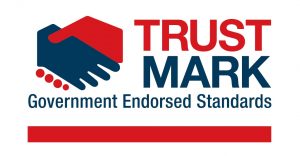 As TrustMark nears a close on its 10th Anniversary year, we nostalgically look back on how we got to this point. This year we’ve been campaigning heavily to promote reputable tradespeople, and shone light into the daily activities of our ten TrustMark Ambassadors, all of whom excel in customer service, trading practices and standards of workmanship.
As TrustMark nears a close on its 10th Anniversary year, we nostalgically look back on how we got to this point. This year we’ve been campaigning heavily to promote reputable tradespeople, and shone light into the daily activities of our ten TrustMark Ambassadors, all of whom excel in customer service, trading practices and standards of workmanship.
Our ambassadors have been involved in a range of activities this year to promote reputable traders. They started off by being featured in our anniversary report which you can download here. This looks at their business practices, ethos and how they stay true to their customers. We’re proud to work with them to change the industry stereotype and instil confidence in customers that by looking for the right indicators you can find truly professional tradespeople.
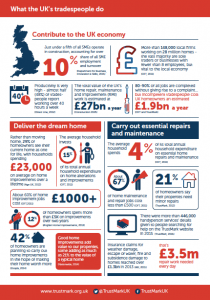 Firms have come a long way from the commonly branded ‘cowboy’ brush that they are still tarnished with. This year alone, we’ve seen a huge drive to change this unfair image. We released an infographic at the start of this year with some keys statistics on how much UK tradespeople contribute to the economy, which unveiled some astonishing figures. The repair, maintenance and improvement sector alone is worth £2.7 billion every year, so the work carried out by tradespeople has a huge impact on the UK economy.
Firms have come a long way from the commonly branded ‘cowboy’ brush that they are still tarnished with. This year alone, we’ve seen a huge drive to change this unfair image. We released an infographic at the start of this year with some keys statistics on how much UK tradespeople contribute to the economy, which unveiled some astonishing figures. The repair, maintenance and improvement sector alone is worth £2.7 billion every year, so the work carried out by tradespeople has a huge impact on the UK economy.
We’re proud to call ourselves a Social Enterprise Mark Holder. We’ve held the Mark for five years already, so we understand how much value it adds to a business such as ours. As a not-for-profit social enterprise, we put the interests of our Registered Firms and their customers at the heart of our business, and having a symbol that recognises this is important as consumers know that we aren’t focused on purely commercial gains.
Naturally, we aim to stay competitive, but in a way that benefits society and the construction industry. To us, the Mark shows businesses we have their best interests at heart, and we’re not just another scheme trying to make money. Social Enterprise Mark CIC are committed to ensuring the social enterprise business model remains ethical, credible and commercial through accreditation.
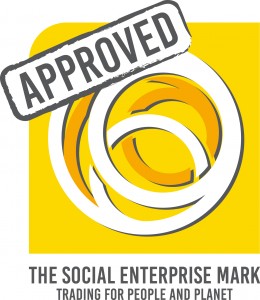 All organisations awarded the Social Enterprise Mark accreditation have one key quality in common: their main aim is to use income and profits to benefit society, rather than individuals such as business owners or shareholders. As the only social enterprise accreditation that is internationally available, we see it as a distinctive sign of quality and reassurance to consumers. It is also re-assessed on an annual basis, to ensure businesses are maintaining a fair approach and keep consumer interests at the core of activity.
All organisations awarded the Social Enterprise Mark accreditation have one key quality in common: their main aim is to use income and profits to benefit society, rather than individuals such as business owners or shareholders. As the only social enterprise accreditation that is internationally available, we see it as a distinctive sign of quality and reassurance to consumers. It is also re-assessed on an annual basis, to ensure businesses are maintaining a fair approach and keep consumer interests at the core of activity.
As a social enterprise, we don’t have a big marketing budget to play around with, so for TrustMark as an organisation we focus on spreading the word organically and adding value to our firms and their customers in any way we can in order to grow and stay competitive. Being a Social Enterprise Mark holder sends a message to firms that we are a professional organisation, and we feel that such affiliations attract the right sort of firms to become TrustMark registered. It’s important in this day and age to give a platform for quality, expert people to sell themselves with the recognition they deserve.
Within our big drive this year to promote professionals in the industry and add credibility to their businesses, we’ve set about a number of initiatives, to expand on the work with our Ambassadors and offer easier ways of staying professional to all of our Registered Firms.
One of the ways we looked to do this way by launching a new feedback system earlier this year to add value to traders on the TrustMark website. We see online reviews as a real sign of quality, and is obviously a great way for these firms to prove their worth to new customers who might not be familiar with their standards of workmanship. We try to encourage our firms to request reviews from all customers, even those that might have had some hiccups along the way. Reviews are often criticised for their inability to distinguish between real and fake, but with this new system in place, we are going the extra mile to ensure reviews are genuine. All customers leaving a review will have their review moderated by Referenceline to ensure they are genuine customers, and are not denied the right to leave a review by the firm.
We’re now looking to 2017 and how we can continue to add value to our Registered Firms so that they can pass this on to their customers. We’ll soon be launching a National Trading Standards Approval scheme – so this is something to look forward to seeing in the New Year!
Accredited social enterprises shortlisted for prestigious awards
We were delighted to see so many Social Enterprise Mark holders shortlisted for the upcoming 2016 UK Social Enterprise Awards, including long-standing Mark holder Connection Crew, which is shortlisted for the prestigious Social Enterprise of the Year accolade.
Congratulations and best of luck to all the following organisations:
- Beacon Centre – One to Watch Award
- Big Issue – Consumer Facing Social Enterprise Award
- Big Issue Invest – Social Investment Deal of the Year
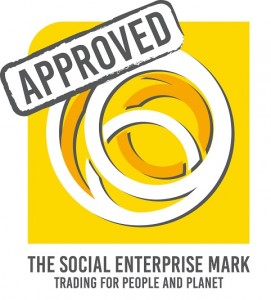 Business Launchpad – Inspiring Youth Enterprise Award
Business Launchpad – Inspiring Youth Enterprise Award- Connection Crew – Social Enterprise of the Year
- Co-wheels – Environmental Social Enterprise Award
- hisBe – Consumer Facing Social Enterprise Award
- Iridescent Ideas – Social Impact Award
- Real Ideas Organisation – Education, Training & Jobs Social Enterprise Award and Inspiring Youth Enterprise Award
- Helen Giles, MD of Real People HR – Social Enterprise Women’s Champion
- The Soap Co. (subsidiary of Clarity) – One to Watch Award
- Turning Point – Health and Social Care Social Enterprise Award
Winners will be announced at a ceremony and gala dinner in London on Monday 28th November 2016. Good luck to all the shortlisted organisations.
Growing consumer appetite for brands with social purpose
![]() UK consumers, especially the younger generation, would pay more for products/services with a clear social purpose, according to a recent report from communications agency WE.
UK consumers, especially the younger generation, would pay more for products/services with a clear social purpose, according to a recent report from communications agency WE.
The report, based on a a study of 2,000 UK consumers by YouGov, showed a growing consumer appetite for organisations that demonstrate a social purpose and how they are having a positive impact on society.
The key findings include:
- UK consumers would pay on average 10% more for a product/service if they think it would have a positive impact on society
- 40% of consumers already regard sustainability as important when making purchase decisions
- The younger generation is more prepared than any other age groups to support ‘better’ products/services
 This represents an opportunity for social sector organisations to reach a growing number of ‘socially-minded’ consumers by articulating and communicating their social purpose and the benefits they create for society and the environment.
This represents an opportunity for social sector organisations to reach a growing number of ‘socially-minded’ consumers by articulating and communicating their social purpose and the benefits they create for society and the environment.
By applying for Social Enterprise Mark accreditation, you can prove the positive impact your business creates, and promote your credentials as an independently guaranteed social enterprise, committed to trading for the good of people and planet.
Championing social enterprise on a global scale
As I mentioned in a previous blog post, we are experiencing an increasing interest in social enterprise accreditation at an international level. Since 2015, almost ¼ of all visits to our website have been from outside the UK, and we have recently awarded the fourth international Social Enterprise Mark to AUARA EMPRESA SOCIAL, a Spanish social enterprise investing profits from the sale of premium bottled water into social projects to provide clean water to people in need.
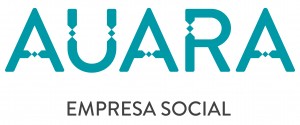 AUARA is the latest addition to our growing international network of accredited social enterprises, committed to trading for people and planet. Since C3 in UAE was approved as our first international Mark holder in April 2015, they have been joined by FLOCERT, the global certification body for Fairtrade labelled products, Northdoc, a GP out of hour’s service in Dublin, and now AUARA.
AUARA is the latest addition to our growing international network of accredited social enterprises, committed to trading for people and planet. Since C3 in UAE was approved as our first international Mark holder in April 2015, they have been joined by FLOCERT, the global certification body for Fairtrade labelled products, Northdoc, a GP out of hour’s service in Dublin, and now AUARA.
International applications are unavoidably more complex than applications from UK businesses, as we are unable to perform the usual verification actions involved in assessing applicants’ eligibility. Having said that, from our experience of assessing and accrediting the above organisations, we now have a tried and tested international assessment process that we are confident can be applied anywhere in the world.
It seems that the UK is considered something of a pioneer of social enterprise, and we at Social Enterprise Mark CIC are the world pioneers of social enterprise accreditation. As such, we are experiencing increasing demand from countries around the world wanting to learn about the UK experience, and, in particular, our experience of setting up an accreditation system for social enterprise.
Following a consultancy project with the Russian Foundation, Fund 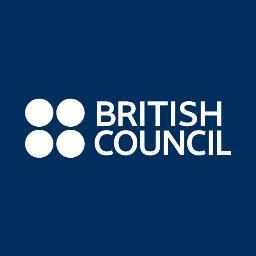 our Future, in 2015, which has led to more than 30 Russian social enterprises now holding their Social Enterprise Mark, we completed a similar piece of work for the British Council in China this year, advising on the development of a Chinese social enterprise accreditation system.
our Future, in 2015, which has led to more than 30 Russian social enterprises now holding their Social Enterprise Mark, we completed a similar piece of work for the British Council in China this year, advising on the development of a Chinese social enterprise accreditation system.
As a global champion of standards for social enterprise, and the body responsible for the only internationally available social enterprise accreditation, we are excited by these developments, and are proud to play a continuing role in influencing the destiny of social enterprise on a global scale.
Obviously, this growing interest in accreditation stems from an increased global awareness of the social enterprise business model and how it can play an important part in driving sustainable economic and social development. I was recently reminded of the 2015 ‘Think Global, Trade Social’ report from British Council and Social Enterprise UK, which made the case for the role social enterprise can play in addressing social and environmental challenges. In this report, it was particularly interesting to see a challenge to the common criticism of social enterprise – that it is too small and niche to make a significant difference at a national or global scale – a misconception that I have often
sought to correct.
As highlighted in the report, there is considerable evidence that social enterprise contributes significantly to economic development – for example, the G8 Social Impact Investment Taskforce reports that “Social sector organisations already account for more than 5% of GDP in several countries, including Canada, Germany, the UK and the US”.
The challenge is to raise the profile of social enterprise as a mainstream business model, and not just in the UK but on a global scale – this is something that we continually strive to achieve through our international work. Through our international consultancy services, we aim to support other countries to encourage the development of social enterprise and influence the conditions in which it can flourish.
A comment from our 2015 stakeholder survey jumped out at me – “(SEMCIC) needs to push the international dimension more – be the global centre of social enterprise.” It occurred to me then that we could better promote the international aspect of our work, not just by attracting more international applicants, but by championing the global standard for social enterprise through consultancy for our global counterparts.
I think we have made significant progress with this over the last year – both Richard and I have travelled to Asia (China and Taiwan respectively) to share our experience of setting up a social enterprise accreditation scheme, and we have had several other countries express an interest in our consultancy services. We have also doubled our network of international Mark holders, and have another in the pipeline, which we hope to announce soon!
Please click here to find out more about our work as a global champion of social enterprise.
Expanding our international network of social enterprises
As the champion of social enterprise standards and the body responsible for the only internationally available social enterprise accreditation, we are delighted to have announce that we have recently expanded our global network of accredited social enterprises.
 AUARA EMPRESA SOCIAL, a new Spanish social enterprise, committed to using profits from the sale of bottled water for investment in social projects to provide clean water to people in need, has recently been awarded the fourth international Social Enterprise Mark. AUARA joins C3, FLOCERT, and Northdoc in the growing network of organisations outside the UK accredited with the Social Enterprise Mark, proving a commitment to trading for people and planet.
AUARA EMPRESA SOCIAL, a new Spanish social enterprise, committed to using profits from the sale of bottled water for investment in social projects to provide clean water to people in need, has recently been awarded the fourth international Social Enterprise Mark. AUARA joins C3, FLOCERT, and Northdoc in the growing network of organisations outside the UK accredited with the Social Enterprise Mark, proving a commitment to trading for people and planet.
From the experience of assessing and accrediting these organisations, we now have a tried and tested international assessment process that can be applied anywhere in the world. In addition, we offer an international consultancy service to advise global counterparts looking to set up similar accreditation schemes for social enterprise within their own countries.
 AUARA seeks to turn the everyday act of drinking water into an extraordinary act – to bring clean drinking water to those who have no access to it.
AUARA seeks to turn the everyday act of drinking water into an extraordinary act – to bring clean drinking water to those who have no access to it.
To achieve this, the organisation sells premium branded mineral water and invests 100% of distributable profits in projects providing access to clean drinking water to those in need across the world.
AUARA also seeks to minimise the environmental impact of the consumption of bottled water, and is the first water brand in Europe to use 100% recycled plastic (rPET) for its bottles, which have been specifically designed to be as efficient as possible in terms of transport optimisation.
Antonio Espinosa, CEO of AUARA said: “The Social Enterprise Mark is a way for a social enterprises like AUARA to certify all of our social and environmental commitments. In a country like Spain where the social business model is still unknown by the most, having this accreditation means credibility and transparency. It is an easy way of expressing the core and the mission of our social enterprise.”
Lucy Findlay, Managing Director of Social Enterprise Mark CIC, said “We are delighted to award the Social Enterprise Mark to AUARA, proof of their commitment to trading for people and planet. AUARA has come up with an innovative concept of turning an everyday activity into a means of bringing clean drinking water to those in need.”
“It is exciting to see our network continuing to expand across international borders. We are seeing a growing interest in social enterprise at a global level, and it seems that the UK is acknowledged as a pioneer in this model of business and we at Social Enterprise Mark CIC are the world pioneers of social enterprise accreditation.”
Please click here to find out more about our work as a global champion of social enterprise.
Services/products you wouldn’t expect to be delivered by social enterprises
During my 15 odd years working in the social enterprise sector, I have been asked countless times to explain what a social enterprise is. Like many others in the sector I am sure, I tend to wheel out the same well-known examples, such as Big Issue and Age UK, to illustrate the concept of social enterprise. Using these ‘mainstream’ big name examples does help to get people’s heads around the idea of social enterprise, although I often think of the many organisations operating across the country (and internationally for that matter), that fit the bill but do not have the label. That is, they want to make a profit but commit to reinvesting this to create benefits for people and the planet. These businesses operate in almost every industry, and I am sure many people would be surprised at the wide range of products and services delivered by social enterprises.
Using examples from our network of Social Enterprise Mark and Gold Mark accredited organisations, I have listed below a handful of the products and services that you probably didn’t realise were delivered by social enterprises.
 Accommodation and conference facilities
Accommodation and conference facilities
It’s a service that we all use at some point, either in a personal or professional capacity, but many would not readily consider that hotels and conference venues would offer much in terms of creating social value.
 However, take the Wesley Hotel for example – the only hotel to have been awarded the Social Enterprise Mark and the first ethical hotel in the UK. The Wesley is committed to sustainable operations and social responsibility, which underpins everything they do, from procurement to waste management, and from water usage to employment practices.
However, take the Wesley Hotel for example – the only hotel to have been awarded the Social Enterprise Mark and the first ethical hotel in the UK. The Wesley is committed to sustainable operations and social responsibility, which underpins everything they do, from procurement to waste management, and from water usage to employment practices.
A distinct example of how they create social value is the Hilda Porter Bursary Fund, which provides funding for marginalised students and young people in the UK and developing world, who do not have the means to study at higher education level.
 Banking and finance
Banking and finance
With the negative press frequently associated with the banking and finance sector, it may be surprising to learn that there are a growing number of ethical banks and financiers, including Charity Bank – a bank entirely owned by charitable foundations, trusts and social purpose organisations.
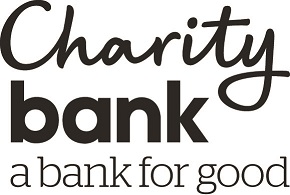 Charity Bank was founded to support charities with loans that they couldn’t find elsewhere and to show people how their savings could be invested ethically and in ways that would make them happy. Their community of borrowers, savers, shareholders and staff are all working towards one goal – helping to create lasting social change in communities. Loans are provided to organisations to further their social missions, and borrowers are assessed on both immediate benefits for their beneficiaries, and longer term benefits for the borrower themselves.
Charity Bank was founded to support charities with loans that they couldn’t find elsewhere and to show people how their savings could be invested ethically and in ways that would make them happy. Their community of borrowers, savers, shareholders and staff are all working towards one goal – helping to create lasting social change in communities. Loans are provided to organisations to further their social missions, and borrowers are assessed on both immediate benefits for their beneficiaries, and longer term benefits for the borrower themselves.
 Higher Education
Higher Education
Higher Education is not the first thing that pops into most people’s minds when they think of social enterprises, especially given the modern cost of studying for a degree. However, we have noticed a growing in interest social enterprise from the Higher Education sector, and there are now 5 Higher Education Institutions (HEIs) which have been awarded the Social Enterprise Mark or Social Enterprise Gold Mark in recognition of their commitment to creating positive social and economic change:
More than ever before, HEIs are placing civic engagement, social and environmental justice, and sustainable economic development at the heart of their strategic plans and student experience, and each of the above institutions have demonstrated a commitment to these values, putting sustainable and ethical business practices at the heart of their strategic direction.
 IT and digital services
IT and digital services
Again, these services may not immediately spring to mind when thinking of services provided by social enterprises, but there are organisations in the IT industry that place an emphasis on operating ethically and creating social impact.
 Cosmic is one such example; an ethical digital agency specialising in website development, IT training courses, business consultancy, tech support, digital marketing and search engine optimisation. They were the very first organisation to be awarded the Social Enterprise Mark back in 2010, and have a key objective of improving digital inclusion – providing IT support for people and organisations who need it the most.
Cosmic is one such example; an ethical digital agency specialising in website development, IT training courses, business consultancy, tech support, digital marketing and search engine optimisation. They were the very first organisation to be awarded the Social Enterprise Mark back in 2010, and have a key objective of improving digital inclusion – providing IT support for people and organisations who need it the most.
They are continually involved in a range of projects which achieve meaningful impact for individuals and organisations across the South West and use their own resources to develop and deliver project work benefiting thousands of people.
 Office supplies
Office supplies
It’s not just services that are delivered by social enterprises – there are many retail businesses that operate in competitive commercial markets, whilst maintaining a commitment to social and/or environmental objectives.
 An interesting example of a non-conventional social enterprise is Supply Shack – a group of sub-divisions selling office supplies, furniture, promotional gifts, signs, as well as design and print services.
An interesting example of a non-conventional social enterprise is Supply Shack – a group of sub-divisions selling office supplies, furniture, promotional gifts, signs, as well as design and print services.
They have a strong social mission; their primary objective is to drive social change. They achieve this through their unique ‘giving back to the community model’, whereby they offer an extensive range of products and services at competitive rates, the majority of profits from which are reinvested into the community with a focus on making a difference to people’s lives. Each year their customers vote for the community projects and charities that Supply Shack will support. They also engage with charities and apprenticeship schemes to offer employment opportunities for those from disadvantaged backgrounds.
This is just a handful of examples, you can find many more in our online directory of accredited social enterprises. I urge you to look out for the Social Enterprise Mark and Gold Mark badges as a sign of social enterprise credibility – all organisations that we accredit are guaranteed to be operating with the primary motivation of creating benefits for people and the planet.
New look for Social Enterprise Mark accreditation
We are excited to unveil a new look for Social Enterprise Mark CIC and our accreditation Marks – the Social Enterprise Mark and the Social Enterprise Gold Mark.
Our objective in creating these new designs was to more clearly demonstrate/communicate the status of those displaying the Marks as proven and accredited social enterprises, guaranteed to be trading for the benefit of people and planet.
We have also created a new identity for Social Enterprise Mark CIC, as the guardians of credible social enterprise standards. We feel that the new logo clearly reflects our mission: “To assure the social enterprise business model remains ethical, credible and commercial through accreditation.”
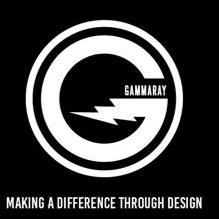 It was a pleasure to work with Troy Woodhouse of Plymouth-based creative agency Gammaray Creative in designing the new look for the organisation. Gammaray Creative has a strong social mission to make a difference to people less fortunate, and follow a simple mantra; “Take your talent and pass it on”.
It was a pleasure to work with Troy Woodhouse of Plymouth-based creative agency Gammaray Creative in designing the new look for the organisation. Gammaray Creative has a strong social mission to make a difference to people less fortunate, and follow a simple mantra; “Take your talent and pass it on”.
We will be rolling out the new logos gradually over the summer and all Social Enterprise Mark and Gold Mark holders will receive the new versions to proudly display their status as an accredited social enterprise, independently guaranteed to be creating benefits for people and planet.
To request a copy of any of the new designs, please email marketing@socialenterprisemark.org.uk or call our helpline on 0345 504 6536. We look forward to hearing feedback on the new look.
Social Enterprise Mark holders working together to add social value
Social Enterprise Mark holders Cosmic and Pluss have worked closely together for several years, through project work, development of a new Pluss website and, most recently, the creation of a new video to showcase the outcomes for clients that Pluss have supported into finding employment.
The objective was to produce a video that created real emotions, which was achieved using a number of techniques, including using upbeat, optimistic music to create a positive atmosphere to the video, and showing the case study clients smiling and proactively interacting with others. Incorporating positive words from those that work with each of Pluss’ clients also added to the optimism of the video.
Cosmic filmed over several days at a variety of locations, to capture the stories of a number of Pluss’ clients and their employers, to produce a final video (shown below) that showcased their individual stories, difficulties and the positive outcomes of finding employment.
Feedback from Pluss was exceptionally positive – Geraldine Scott-Smith, Communications and Public Affairs Manager, said; “Quite simply, I love it. I think you have done an amazing job – you just seemed to get what I wanted and have been a pleasure to work with too.”
For more information on this project, please visit the Cosmic website.
Help & Care named Making a Mark competition winners
Dorset based charity Help & Care was named as the winner of the Social Enterprise Mark CIC ‘Making a Mark’ competition at a celebration at our recent conference in Salford. They were presented with a special award, created for us by Rowan, an arts centre and charity for learning disabled people.
The Making a Mark competition was a celebration of the vast and diverse social benefits created by Social Enterprise Mark holders, and highlighted interesting examples of how accredited social enterprises are creating considerable social impact within their local communities and in wider society.
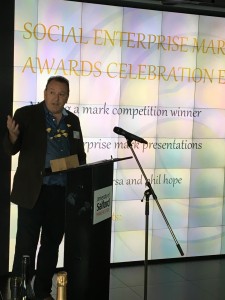 On accepting the award, Mark Sharman, CEO of Help & Care, said “We were both surprised and delighted to receive this award because it is not a recognition of what we do or how we do it. It is about the most important thing which is what impact are we having on the lives of people and communities. It is a recognition of our great staff and volunteer team who live our values to make a difference.”
On accepting the award, Mark Sharman, CEO of Help & Care, said “We were both surprised and delighted to receive this award because it is not a recognition of what we do or how we do it. It is about the most important thing which is what impact are we having on the lives of people and communities. It is a recognition of our great staff and volunteer team who live our values to make a difference.”
Lucy Findlay, Managing Director of Social Enterprise Mark CIC, said, “We are delighted to announce the long standing Social Enterprise Mark holder Help & Care as the ‘Making a Mark’ competition winners. They won because they not only help people who want something different and better out of life, they can also demonstrate clearly how they are making a difference to people’s lives. Well done to Mark and his team.”
Selected from over a network of over 200 accredited social enterprises, Help & Care was shortlisted alongside 6 other organisations, including Golf Environment Organization and Iridescent Ideas. Following a public vote and a separate vote by the independent Certification Panel (both accounting for 50% of the final result), the result was a close call, with not much to seperate all the well deserving finalists. We therefore decided to announce a runner up – this was awarded to Welsh community transport provider Llanwrtyd Wells Community Transport.
We invited Mark Cotton FRSA to present the award, and he commended all the finalists on their achievements and congratulated them on making the shortlist, before presenting certificates to all the finalists who were in attendance at the conference.
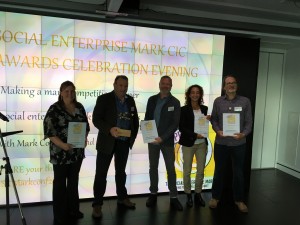
L-R: Laura Burns (LWTC), Mark Sharman (Help&Care), Mark Cotton FRSA, Mona Karraoui (GEO), Gareth Hart (Iridescent Ideas)
We would like to extend our congratulations to all of the competition finalists:
 Cockpit Arts
Cockpit Arts- Eden Project
- Golf Environment Organization
- Help & Care
- Iridescent Ideas
- Llanwrtyd Wells Community Transport
- Work West
Embedding social enterprise globally
As the only international accreditation body for social enterprise, we have witnessed the growing interest in social enterprise from around the world. Almost a quarter of our website hits come from overseas and we now have 3 international Social Enterprise Mark holders.
We have also recently completed a piece of work for the British Council in China, advising on the development of a Chinese social enterprise accreditation system. Following a similar piece of work we did for the Russian Foundation in 2015, there are now more than 30 Russian social enterprises that hold their Social Enterprise Mark. Much of this interest is clearly being delivered and driven, at least in part, by universities and academics who have identified its potential.
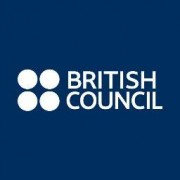 An interesting report has just been published by the British Council, looking at how universities across the world are promoting and getting involved with social enterprise. The report responds to the growth of international interest in social enterprise and the parallel growth in interest from Higher Education Institutions (HEIs). It highlights a number of ways in which HEIs are supporting the agenda, including:
An interesting report has just been published by the British Council, looking at how universities across the world are promoting and getting involved with social enterprise. The report responds to the growth of international interest in social enterprise and the parallel growth in interest from Higher Education Institutions (HEIs). It highlights a number of ways in which HEIs are supporting the agenda, including:
- research
- teaching and improving the student experience
- partnership opportunities
- addressing social inequalities and local need
- creating social impact
- acting as an incubator/catalyst given their potential economic multiplier effect
One of the major findings of the report is that there is challenge in terms of resourcing and time in partnering with social enterprises, particularly where social enterprise does not form part of a mission or strategy, as well as a lack of social enterprise international definition and understanding. The Social Enterprise Mark and the Social Enterprise Gold Mark offer solutions to some of these problems. By getting buy-in from the whole university into social enterprise, and applying its own systems, processes and rigour to the definition and good practice of social enterprise, as defined by the Mark, the institution demonstrates that the principles have been embedded across the board strategically. It demonstrates to students, staff and partners that it is practicing what it teaches. It also tackles definition issues as there is a clear destination for partner social enterprises to work towards.
The short film that we have recently developed in partnership with HEFCE demonstrates, in the words of the universities that hold the Social Enterprise Mark, the value that staff and students gain from it. I would encourage you to have a look to see the breadth and diversity of work that is going on in UK universities that hold the Social Enterprise Mark and Social Enterprise Gold Mark.
We need to make the most of the fast growth and interest internationally in social enterprise, making sure it is not a fleeting fad. It offers a real alternative to the ‘business as usual’ model. Universities across the world are the leaders in thought and in teaching the next generation. The challenge of embedding it across universities is therefore a key plank in making sure that it is here to stay and that it does not get subsumed and side lined by the next fashionable topic.
We are pleased to offer an exclusive discount package to GuildHE member universities on applications for the Social Enterprise Mark and Social Enterprise Gold Mark. Please contact us for more details.
For universities wishing to find out more about Social Enterprise Mark/Gold Mark accreditation, HEFCE are hosting an event in London on Friday 1st July (12-2pm), where Social Enterprise Mark CIC and representatives from a University which has already been awarded the Social Enterprise Mark will be on hand to provide more information about the accreditation, how to apply, and to answer any questions that you may have. Please click here to book your place.
Cash cows and money milking
The public and press have short memories. Today and over the last few weeks there has been flurry of scandal and comment about corporate greed. Even the right wing press are shouting about how BHS has been asset stripped, leaving a huge pensions hole. From offshore accounts and tax evasion, to BP paying a huge bonus to their CEO (despite huge losses being made by the company), the prevailing behaviour seems to be keep milking as much shareholder profit out, pay very little tax and forget thinking or caring about the consequences and who it affects.
A magnifying glass is held up to this sort of behaviour whilst it’s top of the news agenda, but it soon goes back to business as usual. There is no consistency in reporting either. One day there will be exposure of corporate greed in delivery of public services and the next day that company will be telling the business pages what a great job it does in valuing its employees and customers – maybe the figurehead head becomes another government ‘business czar’ – and getting CSR awards to boot?!
It doesn’t have to be like this though. If social enterprise was seen as a viable alternative, not just a niche, do-gooding, market failure option then perhaps we would get somewhere! Instead we forever seem to be hidebound by the current business orthodoxy of business schools the world over; ‘business is there to make money for its shareholders’.
This is why we get into problems with arguments about lack of investment too. The orthodoxy is that it’s hard to expand unless you can attract equity providers. However, as a famous local business person told me, ‘this is the equivalent of selling the family silver’. It means that you are at the behest of the equity stakeholders and even if they own a small proportion they are likely to influence in a purely commercial direction as their role is one of primarily making money. The wider social value of the business comes second.
What we need is a radically different business model that is seen as mainstream, not marginal. I don’t think that this is Corporate Social Responsibility. Rather it’s about truly putting people first. The old co-operatives of the last century were the centre of their community, because they were owned by the people that lived there. They were first and foremost about serving the locality, not making a fast buck and running.
There are those out there that share this ideal and business model that are not just niche; they are a substantial part of the economy. Universities, colleges, theatres, arts groups, membership bodies, sports clubs, unions – they all have a strong social mission but operate in many cases as businesses. They are our allies and we should be working together more closely to present a vision of what we want business to look like, not what business dictates to us.
Our conference in June, entitled ‘Standing up to Scrutiny’ will look in more detail at how we can work together to promote social enterprise as a credible and sustainable business model for the future. We will discuss the importance of accreditation and standards systems, and how these can help social enterprises to measure, demonstrate, and report on their social impact. Please click here for more information and to book your ticket.
Influencing the international destiny of social enterprise
By Richard Cobbett, Assessment and Compliance Manager
 Last month I had the great privilege of visiting Beijing, China, where I had been invited by the British Council to talk about the development of the Social Enterprise Mark certification process.
Last month I had the great privilege of visiting Beijing, China, where I had been invited by the British Council to talk about the development of the Social Enterprise Mark certification process.
As well as the Council, I met with several key academics, including Professors Yuan Ruijun, Zhang Yanlong, Meng Zhao and Zhiyong Chen, from the Universities of Peking and Renmin and Ruixue Zhang from the China Philanthropy Research Institute (CPRI). As a group, they are striving to establish a clear definition for social enterprise in China, with a view to then developing their own infrastructure for certification. Through this they aim to encourage the development of social enterprise and influence the conditions in which it can flourish.
The term “place of contrasts” is somewhat of a travel cliché but could certainly be applied to my short time experiencing Beijing, and also visiting other locations in China as a tourist. I wonder though, do indigenous populations recognise this about the countries they live in or simply accept everything as part of a greater whole? As I was to discover, this provided a metaphor for the social business landscape in China, as they continue to explore questions of social enterprise differentiation.
On my arrival, I had a short time to recharge, although jetlag was yet to seriously take hold. Over the next few days though, this and the inevitable language barriers found me more than once recalling Bill Murray and the film “Lost in Translation”, which suddenly took on a whole new level of meaning for me!
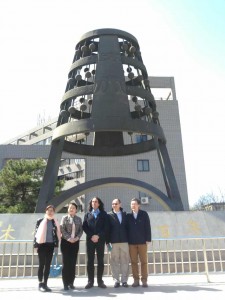 I initially met with Hou Peng and Jack Yu from the British Council, along with Ruixue Zhang (CPRI) for an early dinner as part of a general welcome. I was to find that mealtimes always raised a few polite smiles as people observed me honing my chopstick skills but I like to think that by the end my stay I had got quite proficient at it!
I initially met with Hou Peng and Jack Yu from the British Council, along with Ruixue Zhang (CPRI) for an early dinner as part of a general welcome. I was to find that mealtimes always raised a few polite smiles as people observed me honing my chopstick skills but I like to think that by the end my stay I had got quite proficient at it!
The following day I met with the University Professors and CPRI representatives, who have done extensive research into different systems of social business certification from across the world. I talked about the development of the Mark, the rationale behind the criteria and workings of our assessment process.
We drilled down into these matters in detail, provoking lively debate amongst the group concerning how far the Mark could be applied in China, and the potential barriers and challenges posed. It was a fairly intensive interaction – quite a baptism of fire for me and one that certainly kept me engaged as the jet lag slowly kicked in! I made it through the day, stubbornly refusing the offer of a knife and fork at lunchtime (and not going as hungry as I did the previous day)!
The following day I contributed to a workshop lead by my Chinese colleagues involving delegates from across China – people either supporting, running or working in social businesses. The workshop provided a forum for people to discuss social business certification and the relevance of this for China. It was a long and fascinating day, placing several of the questions raised during my first day within the real life contexts of organisations who see themselves as prospective social enterprises. Those in attendance included business entrepreneurs, organisations we might label “social firms”, charitable and community businesses, as well as ones that would more immediately conform to our stricter definition of social enterprise. There was also an agency present who were administering a regional pilot certification initiative and an organisation that had achieved it. This follows very similar criteria to that of the Mark and both organisations spoke positively about the process: the value they perceive in differentiation but also in how it has encouraged them to think more carefully about their purpose, how they work, and the social value they are creating.
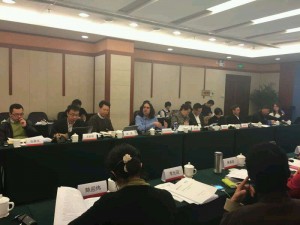 As the mix of delegates suggests, those who might describe themselves as a “social enterprise” in China include all manner of businesses laying claim to social purpose through what they do and/or how they operate. This and other challenges for certification that revealed themselves across the day included familiar ones. Views ranged from those who are suspicious of the need for standardisation if they can simply show their social value; to those who see it as a means of improvement, by clearly aligning themselves with certain core principles and gaining recognition for these credentials. More uniquely to China perhaps, their varied terrain also includes distinct local economic and cultural differences, which pose other difficulties for standardisation.
As the mix of delegates suggests, those who might describe themselves as a “social enterprise” in China include all manner of businesses laying claim to social purpose through what they do and/or how they operate. This and other challenges for certification that revealed themselves across the day included familiar ones. Views ranged from those who are suspicious of the need for standardisation if they can simply show their social value; to those who see it as a means of improvement, by clearly aligning themselves with certain core principles and gaining recognition for these credentials. More uniquely to China perhaps, their varied terrain also includes distinct local economic and cultural differences, which pose other difficulties for standardisation.
The potential cost and benefits of delivering robust certification understandably lay at the heart of many questions and this revealed similarities to what our MD Lucy Findlay, found when she visited Taiwan last year. At the moment, there are a mixed bag of interests and all want to know how certification may lead to social investment or legislative advantages. But throughout the day, it was interesting for me to observe how many of the questions being posed were ones echoing our own experience of developing the Mark. As discussions unfolded though, I found myself quite deliberately taking a back seat. This wasn’t me succumbing to jet-lag or the audial acrobatics of simultaneous translation! It was satisfying to see answers to different concerns or objections being identified from within the room, instead of there being a reliance on so-called “experts” to provide these. Whilst it was inspiring to see how we may be helping to influence the destiny of social enterprise in China, to see people on different sides of the debate contributing so keenly and taking such ownership was much more so.
Questions around our profit distribution criterion possibly generated the most interest. I have to admit to being a little bit surprised when one delegate suggested that it went against human nature and the desire to achieve personal profit. But it was a reminder that China has come a long way in developing capitalist sensibilities. The obvious answer perhaps was “it depends on how you measure your sense of profit”, but it serves as a recognition that social business comes in various forms. As I said at the outset: China is a nation of contrasts and their social business landscape is made up of different interests. In this they are no different to anywhere else. There is room in the world for any business seeking to make a positive social difference, and they are all to be commended for it where they do.
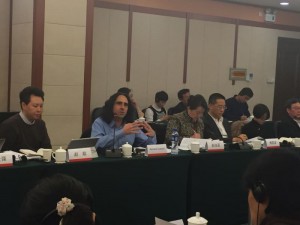 In my closing address, I recognised this point and attempted to answer the question – why differentiate social enterprise? I explained how several years ago in the UK we asked the same question, and the Mark was born. We did this because the social enterprise sector believed itself to be a distinct form of social business that is committed to maximising social outcomes through how profits are invested towards these. Of two businesses delivering exactly the same service and same standards, the one committed to investing income/profits in social outputs will always exceed the potential for social impact, compared to the other that exists to generate profits for shareholders. Maybe this is an oversimplification but it helps crystallise why differentiating social enterprise from other forms of social business is relevant. And certification or accreditation should ultimately provide a means through which genuine social enterprises show how they willingly hold themselves up to scrutiny against this differentiator.
In my closing address, I recognised this point and attempted to answer the question – why differentiate social enterprise? I explained how several years ago in the UK we asked the same question, and the Mark was born. We did this because the social enterprise sector believed itself to be a distinct form of social business that is committed to maximising social outcomes through how profits are invested towards these. Of two businesses delivering exactly the same service and same standards, the one committed to investing income/profits in social outputs will always exceed the potential for social impact, compared to the other that exists to generate profits for shareholders. Maybe this is an oversimplification but it helps crystallise why differentiating social enterprise from other forms of social business is relevant. And certification or accreditation should ultimately provide a means through which genuine social enterprises show how they willingly hold themselves up to scrutiny against this differentiator.
I finally reflected on how accreditation essentially represents a form of regulation – a dirty word for many, but in considering this I asked people to cast their minds back several years ago. To recall a rapacious sector, one resistant to regulation in the belief that it placed a burden on their capabilities, restricting their potential for success and any associated benefits for the economy and wider society. The results of this arrogance, of being above and beyond scrutiny are well known. I suggested that social enterprise is meant to be better than this and that accreditation should actually be seen as a natural element of helping build trust through ensuring and proving this. More than this, subscribing to achieve and maintain standards, to be held account to them, is actually a means through which people and organisations can build their capability – not have it restricted. Certification is therefore a form of enablement.
 I thoroughly enjoyed my time meeting with a vanguard of social enterprise in China and learned much from them while I was there. My time in the country was not over at this point as an army of clay soldiers, the delight of pandas at play and a hike across a great wall awaited me (amongst other magnificent sites, along with some dubiously informed menu choices!). But that, as they say, is another story… My memories are of a country of great and beautiful contrasts and an experience I will fondly recall. I would like to thank Hou Peng of the British Council in China for his organisation and expert facilitation of my visit.
I thoroughly enjoyed my time meeting with a vanguard of social enterprise in China and learned much from them while I was there. My time in the country was not over at this point as an army of clay soldiers, the delight of pandas at play and a hike across a great wall awaited me (amongst other magnificent sites, along with some dubiously informed menu choices!). But that, as they say, is another story… My memories are of a country of great and beautiful contrasts and an experience I will fondly recall. I would like to thank Hou Peng of the British Council in China for his organisation and expert facilitation of my visit.
How the Social Enterprise Mark can benefit Higher Education Institutions
By Cara Aitchison, Vice Chancellor of University of St Mark & St John
Our students and graduates are increasingly reporting that they seek employment and lifestyles that enable them to contribute to the social, cultural and environmental well-being of their communities, society and the world around them, rather than simply thinking of their degree as a route to a highly paid career. This presents an opportunity for university leaders who chose to put ethics, civic engagement, social and environmental justice and sustainable economic development at the heart of their strategic plans and student experience.
By being accredited with the Social Enterprise Mark, universities can better demonstrate their sustainable and ethical business credentials to the next generation of applicants. We can show our students how we apply in practice the values and knowledge that we teach and how they too can be part of a social enterprise culture.
We are all under increasing pressure to expand and diversify our income streams, and to demonstrate our positive benefit to the students, communities and stakeholders we serve. The social enterprise business model provides opportunities for HEIs to transform the way we are perceived by stakeholders and can enable us to position ourselves as ‘businesses’ driven by social objectives.
 The University of St Mark & St John was awarded the Social Enterprise Mark in 2015, signalling our commitment to social enterprise and demonstrating the social value that we create as a university.
The University of St Mark & St John was awarded the Social Enterprise Mark in 2015, signalling our commitment to social enterprise and demonstrating the social value that we create as a university.
As the number one university in the UK for social mobility, we are proud to be recognised for our commitment to helping local communities and the broader south west peninsula to thrive and prosper. The Social Enterprise Mark helps us to communicate this commitment to students, potential applicants, partners and the wider business community and sets us apart as a values-based, socially conscious university.
As we enter a new era in Higher Education, where the Teaching Excellence Framework and other policy developments emphasise graduate earnings, we need ways to demonstrate our parallel commitment to social enterprise principles, and the Social Enterprise Mark offers one such mechanism.
There is currently a potential discount for GuildHE members that commit to apply for the Social Enterprise Mark before the end of August 2016, and I would recommend doing so. My colleague, Professor Brendon Noble, the Pro Vice-Chancellor for Research, Innovation and International who took forward our application for the Social Enterprise Mark, can also talk to you about our experience and the benefits.
You can get in touch with Social Enterprise Mark CIC with any questions, or to express your interest in applying – 0345 504 6536 or via email.
Originally posted on the GuildHE blog on 22nd April 2016
Why talking about ‘what is a social enterprise?’ is still important
By Gareth Hart, Co-founder of Iridescent Ideas
“So you’re a social enterprise, eh? What does that mean then?” How many times have you been asked that question? How many times have you answered it but still aren’t convinced that they questioner has ‘got it’ or believes it?
The debate about the definition of social enterprise may well seem jaded and old news to those of us within the social enterprise community but it seems that a large proportion of the general public didn’t even realise there had been a debate going on. So, the aforementioned question comes up time and time again. If we want to establish new audiences for social enterprise and push the concept into a wider public consciousness it is vitally important to maintain a public dialogue about ‘what is a social enterprise’.
No one really seems to question you in the same way if your business is a charity or Fairtrade or eco-friendly. There is an automatic assumption these are ‘good’ things. People know what these terms mean. They come with a nice badge, logo or number that tells the public they’ve been checked out and do indeed do what they say on the tin. If only there was a similar thing available to social enterprises…
 Enter the Social Enterprise Mark. The Mark is the social enterprise equivalent of the Fairtrade logo or the Charity Commission number. The Social Enterprise Mark provides:
Enter the Social Enterprise Mark. The Mark is the social enterprise equivalent of the Fairtrade logo or the Charity Commission number. The Social Enterprise Mark provides:
- A clear definition of what constitutes a social enterprise
- An instantly recognisable ‘stamp of approval’ to show that your business has been independently assessed and meets criteria to justifiably call itself a social enterprise
- A national community of like-minded ethical businesses for social enterprises to engage with
- A range of other benefits around marketing and support
There is growing interest in the Social Enterprise Mark, particularly among large organisations like universities. Plymouth University was the first social enterprise university and has held the Mark since 2012. Many of the large health spin-outs also hold the Mark. These organisations provide services to huge numbers of people and have strong roles in public life in their respective towns, cities and areas. I would like to see more large healthcare providers really engage with the public around understanding that they are receiving great services from a local social enterprise. The Mark could help them do this.
As the social enterprise sector, and public awareness of it, continues to grow, so I hope that the Social Enterprise Mark will continue to flow into public consciousness and eventually become as recognisable as the Fairtrade logo. The Mark will evolve, I am sure, and we need an ongoing dialogue about what it means to be a social enterprise both within and outside the sector.
With the introduction of the Social Value Act in 2013 there is a requirement for social value and impact to be given more weight within commissioning of services. Consumers are looking to purchase ethical goods and for businesses to behave better. Surely then, the time is right for the Social Enterprise Mark to become a stamp of social value so that commissioners and customers alike will recognise social enterprises and be able to make more informed choices about the goods and services they buy and use.
I believe that social enterprises are better for the economy and for society. We need to articulate more clear what ‘better’ looks like of course. Social enterprises create wealth and jobs and also deliver environmental and social value. The Mark can be the guarantee that proves this.
Originally published on Iridescent Ideas blog, 2nd September 2015
Helping to create winning or better social enterprises?
I recently stumbled upon an American blog which talks about whether competitions are good for social enterprises. They are indeed all the rage – from social enterprise ‘Dragon’s Den’ style pitches, to ‘Social Enterprise of the Year’ awards. However, are they really what social enterprise is about, and do they really tell us about whether that business is genuinely applying good practice?
Objections to competitions could include:
- They offer a ‘flash in the pan’ snapshot view that doesn’t represent the long hard graft that goes into making a social enterprise work
- What about those who don’t win – is it too much about winners and losers? Does it leave a bad taste for those that don’t win?
- Is collaboration better than competing?
![]() For me, competitions represent a snapshot in time and do have their place – for example, we are currently running the Making a Mark competition to celebrate the vast and diverse social benefits created by Social Enterprise Mark holders.
For me, competitions represent a snapshot in time and do have their place – for example, we are currently running the Making a Mark competition to celebrate the vast and diverse social benefits created by Social Enterprise Mark holders.
However, what competitions do not do is to tell you much about the social enterprise beyond the moment they were judged, or indeed the openness and transparency of competition process. It’s up to whoever the judges are on the day.
Accreditation however offers something quite different. The Social Enterprise Mark for example, is both a tool of business differentiation, and a tool to demonstrate that those who have it have proved how they are making society a better place. There are no losers if you make the accreditation standard consistent and transparent, and our independent Certification Panel ensures this. The Mark provides a guarantee year on year, for both customers and partners, due to the annual reassessment process. Our Social Enterprise Gold Mark goes further, to prove that the best attributes of social enterprise are being applied across the business, and further developed and improved upon over time.
Therefore, we are not just talking about a single snapshot in time, but rather a social enterprise that can prove its social and enterprise attributes on an ongoing basis.
There is more ‘greenwash’ going on than ever before, as businesses realise the benefits of playing the social value and sustainability game. Which is precisely why we, as social enterprises, need to stand up to scrutiny and be open and transparent about what our motivations really are. This is where Social Enterprise Mark accreditation can provide the solution!
 The Mark provides an independent guarantee that an organisation has been through a robust assessment process, and is proven to be trading for people and planet. This is the crucial differentiator, and distinguishes social enterprises’ core motivation for being in business, which sets them apart from standard business models, where the key motivation is often to maximise profits for shareholders.
The Mark provides an independent guarantee that an organisation has been through a robust assessment process, and is proven to be trading for people and planet. This is the crucial differentiator, and distinguishes social enterprises’ core motivation for being in business, which sets them apart from standard business models, where the key motivation is often to maximise profits for shareholders.
‘Standing up to Scrutiny’ is the theme of our conference this year, and the event will focus on why it’s important to prove what we are and how we are doing it. We will consider the importance of accreditation and standards systems, and how these can help social enterprises to measure, demonstrate, and report on their social impact, therefore enabling them to stand out from the crowd.
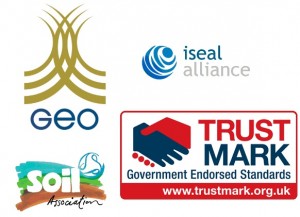 We are pleased to be welcoming a panel of speakers from accreditation and standards setting authorities across a range of sectors, which should provide interesting and diverse perspectives on the importance of such systems.
We are pleased to be welcoming a panel of speakers from accreditation and standards setting authorities across a range of sectors, which should provide interesting and diverse perspectives on the importance of such systems.
The conference is being kindly hosted by Social Enterprise Gold Mark holder University of Salford at MediaCityUK on 8th and 9th June 2016. Earlybird tickets are available to book online from just £50 + VAT.
Hooked on government support…
…from one dependency to another
You can’t have failed to notice the high profile fall of Kid’s Company over the last few months. It reminded me of some of the dangers that can lie in reliance on government contracts for the delivery of public services, which has been repeated as a mantra for the social enterprise sector for nearly 20 years. This of course is not the only issue for Kid’s Company, but one that I focus on here.
Many forget that, historically, social enterprise has its roots (along with the charity sector) in delivering where the conventional market has failed. However, unlike charity, it uses a business model that creates enough revenue to either:
- deliver very low profit margins to reinvest because the social value/impact is included in their business delivery model which would otherwise increase profits; or
- deliver high margins in one activity that supports the cross subsidy of another less profitable social activity, freeing the company to deliver its social mission without the interference of others.
This provides a very flexible model that is really focused on social need. It is often more resilient too because it tends to have a number of revenue generation sources.
The government’s (and others’) wider promotion of opening up public service delivery, and the more recent emphasis on social investment as a means to deliver public services, whilst providing potential profit for investors, have realigned and shifted the focus of social enterprise policy. In fact, in my view, the term “social enterprise” was coined in the early 2000’s in many ways as a result of the opportunities that the spin out of public services presented to new and existing social enterprises.
It is perhaps not surprising that the government became so interested in social enterprise, given the drive to look at alternative delivery models. I remember the Labour Government’s social enterprise strategy was pretty much solely focused on this aspect. A number of us at the time, including the likes of Nigel Kershaw from The Big Issue, questioned why the government weren’t interested in supporting social enterprise to succeed in the open market as well.
It is only when I speak to social enterprise practitioners and commentators outside England that I realise how focused and obsessed the whole sector has become with government contracts. We are constantly urged to ‘influence commissioners’ and ‘prove social value/impact’. We hang on the words of government and the civil service to predict our futures. But to what end? To replace one dependency with another?
If we look back, the track record of successive governments have not been good in this area. It is about to get a whole lot worse. Commissioner loyalties are fragile and fickle especially in the light of more austerity.
Our collective memory seems to have been removed from us. We need to spread our risks, focus on how we become less dependent on government and get back to the reason we exist in the first place – to deliver a social/environmental solution through an ethical business approach.
 The Social Enterprise Mark certification can help to prove your social credentials, as it encourages our Markholders to reflect on their social mission, value, and their independence, in order to differentiate and promote themselves, in order to achieve a sustainability that best serves the people they are in business for. Government contracts do count as trading income, but an overdependence on one source of income that is subject to the vagaries of political pressure never makes good business sense.
The Social Enterprise Mark certification can help to prove your social credentials, as it encourages our Markholders to reflect on their social mission, value, and their independence, in order to differentiate and promote themselves, in order to achieve a sustainability that best serves the people they are in business for. Government contracts do count as trading income, but an overdependence on one source of income that is subject to the vagaries of political pressure never makes good business sense.
Social Enterprise shares results of UK trust survey
The Social Enterprise Mark Company has commissioned a survey to explore the issue of trust among UK adults.
The survey explores attitudes within an individual’s own social circle as well as looking at other aspects of our every day lives like government and business.
Results show that two in three adults of the 2,000 surveyed said they had no faith in the government.
And the typical adult can claim to have around 15 friends through work, university and childhood – but can only really trust four of them.
More than half (54%) of adults surveyed have issues with trust. Adults feel most at risk of being betrayed by a friend, followed by someone they work closely with.
The poll revealed adults put most faith in their partner with six in ten voting them as most trust-worthy, followed by their best friend and then a parent.
The most common reason a person has felt betrayed was by having their secrets blabbed – as almost four in ten said they’d had this done by someone they considered a friend.
And the lack of trust even extended outside the social circle, as two in three adults stated they have no faith in the government.
Over half said they find banks to be dishonest, whilst people and brands linked to tax avoidance were also deemed undeserving of trust.
Companies trading with consumers are up against a very tough audience as results show an unease with what a company might say and what a consumer might believe.
Nearly two thirds of people agree with the statement that a lot of companies pretend to be ethical just to sell more products.
Lucy Findlay added: “This survey shows trust is in short supply. And if people find it hard to trust each other, how much harder is it to trust businesses? And with good reason, as we’ve seen from the many recent examples of financial misconduct and fat cat salaries.”
“Social enterprises are all about accountability, transparency and fairly distributed profits. In other words they’re ethical businesses, committed to caring for both people and planet. “
“The Social Enterprise Mark is your guarantee of this.”
Find out more about the Social Enterprise Mark by visiting www.socialenterprisemark.org.uk/who-do-you-trust/
Read the Managing Director’s blog about trust, see www.socialenterprisemark.org.uk/category/blog/mds-blog/
Events
Nothing Found
Sorry, no posts matched your criteria


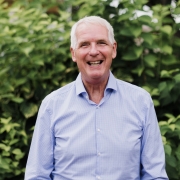
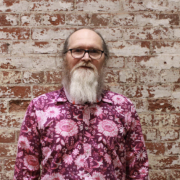 Gareth Hart Iridescent Ideas CIC
Gareth Hart Iridescent Ideas CIC